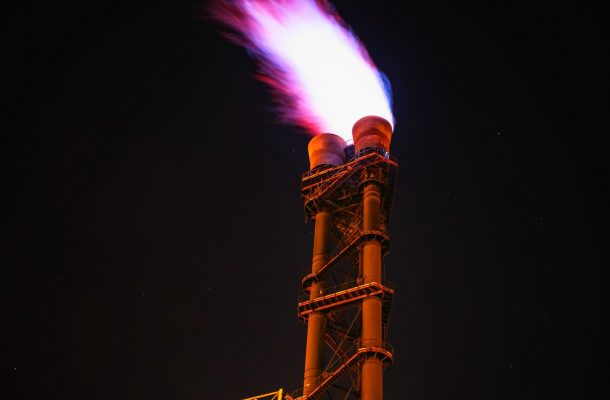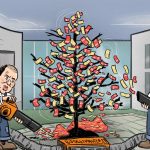#Turn off the gas

When I woke up one morning some weeks ago to the news that Australia’s post Covid-19 economic recovery plan would involve natural gas, I felt a sense of despair. Turning to yet another fossil fuel for our energy solutions while the earth continues to heat up is foolhardy.
This week’s release of the National Covid-19 Coordination Commission’s (NCCC) final report recommendations, urging the federal government to underwrite an expansion of gas supply through tax incentives and financial support for new projects further adds to my anxiety.
I am an “eco-worrier”. I worry about the environmental nightmare that climate change has in store for us, our children and their children.
I have searched the literature for information on this new form of anxiety. Articles in the medical journal the Lancet describe eco-anxiety as a very normal, reasonable response to an abnormal and threatening situation.
While reading the series on Adaptive Anxiety, I discovered that my reactions are not uncommon, and that my small efforts are appropriate, and even therapeutic. Yet, I still feel immense frustration, fear, and some days, despair.
My response has been to campaign to raise awareness of the links between climate change and our personal and global health and wellbeing.
I joined medical advocacy group Doctors for the Environment Australia which has declared climate change a health emergency. I went in search of the evidence for this statement, and as it turns out, there is plenty.
Scientists from many different realms are bringing us the same message over and over: We need to alter our trajectories on CO2 emissions to avoid the very predictable crisis that is looming. This includes not using gas in our post -Covid recovery plan.
In learning more about both climate change and eco anxiety, I have also found messages of hope and optimism. It’s not all gloom and doom. Among the more sombre stories, are optimistic and bright ideas that offer little glimmers of hope.
So much has actually been achieved at local and regional level in spite of the lack of leadership and direction from the collective hegemony around the world and in our own country.
Here in Australia, Beyond Zero Emissions,, a climate change thinktank, researches how we can transform Australia into a zero-emissions economy. In my province of health care, there are many initiatives, such as Global Green and Healthy Hospitals, which aims to both transform the health sector and protect the environment.
Doctors for the Environment Australia whose vision is “Healthy Planet, Healthy People” strives to promote health through care and protection of the environment. DEA recognises that our biosphere is a structural and fundamental determinant of health. It is, in essence, our Life Support System.
When I imagine what our world and our planet might be like ten years hence, I have to hope that our planet will be stable. But, there is an old adage that goes: ”Hope is not a strategy”. Every one of us , in our own small ways, has the capacity to make change. We must keep pushing our leaders in the right direction.
Recently I joined over 40 million health professionals in signing a letter asking the G20 to make public health central to all recovery packages.
In July, the G20 had a meeting of its finance ministers. At this meeting, they planned to find ways to support the global economy as the world grapples with the Covid-19 pandemic.
In my mind, our governments have two choices. They can lock in economic plans that support “business as usual” and guarantee ongoing damage and destruction of our environment. Or they can take steps toward a cleaner, greener recovery.
This meeting of finance ministers was a golden opportunity for me as an eco-worrier to express my concern. I wrote a letter asking them to adopt the WHO manifesto for a healthy recovery from Covid-19.
The manifesto asks that we protect nature, ensure access to clean water, and make the transition to clean energy. It also recommends sustainable and healthy food systems, healthy cities and an end to funding polluting industries.
We have to get our plans for a healthy recovery right. Otherwise, to extend the economics metaphor, we have borrowed an amount from our children that we cannot hope to repay.
Doctors for the Environment Australia is running a campaign to #TurnOffTheGas. Add your voice here.
Dr Lucy Watt is a NSW medical officer in emergency medicine and a member of Doctors for the Environment Australia.














